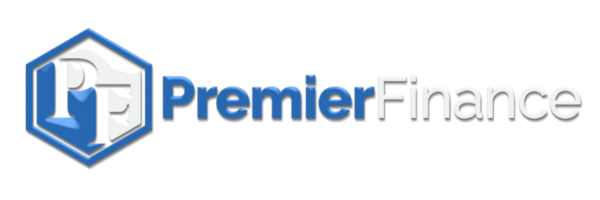Why cash flow affordability matters
Many South African business owners lose funding opportunities — not because their businesses aren’t profitable, but because their cash flow affordability doesn’t meet funder requirements.
When fintech funders review an application, they look beyond turnover and profits. They focus on one critical question: Can your business comfortably afford the repayments based on real cash flow?
Your cash flow affordability determines not only whether you get approved, but also how much funding you can access. Understanding and managing it properly is one of the most important skills for any SME owner.
Why funders watch your bank balance
Your bank balance tells a story about how your business manages money day-to-day. Fintech funders use automated credit models that review your bank statements to assess liquidity and repayment strength. They evaluate:
• Average daily balance
• Lowest balance in the month
• Returned debit orders and unpaid items
• Consistency of deposits and outflows
When your balance drops below R5,000, it’s a warning sign. If your balance often sits under R1,000, most funders will immediately decline your loan — even if your turnover looks strong.
A healthy bank balance reflects good cash flow affordability. It shows that your business has a financial cushion to cover expenses and debt repayments without strain.
💬 Pro Tip: Every business has a different minimum balance requirement based on its loan size and repayment schedule. I calculate this for my clients during a business finance readiness consultation.
Book yours here: https://premierfinance.co.za/consultation/
Cash flow mistakes that damage affordability
Even profitable businesses can lose funding opportunities because of poor banking practices. Here are some of the most common issues that destroy cash flow affordability:
1. Using personal accounts for business transactions – Once your company is registered, it becomes a legal entity. Trading through a personal account violates GAAP principles and makes your financials impossible to assess.
Example: A client generating R10 million a year qualified for only R20,000 in funding because payments went into a personal account.
2. Moving all funds to a money market account – Some business owners transfer all cash to earn interest, then forget about debit orders. Bounced payments show poor cash flow management.
3. Running accounts to zero – A bank account that regularly drops to zero signals a lack of financial buffer. Funders see this as high risk, even for profitable businesses.
How fintech funders assess cash flow affordability
Fintech funders use real-time data to calculate your cash flow affordability. Here’s what happens behind the scenes when you apply for a business loan:
1. Bank statement analysis – Software reviews inflows, outflows, and daily balances.
2. Repayment behavior – Bounced debit orders and arrears lower your affordability score.
3. Repayment ratio – The system checks whether your average balance can support the projected repayment.
4. Liquidity strength – Funders measure how well your business can handle short-term obligations.
Remember: cash flow affordability is not profitability. A business can make money on paper and still fail to qualify if cash flow is inconsistent.
If your applications keep getting declined, it’s often due to poor cash flow affordability, not low turnover.
Book a consultation: https://premierfinance.co.za/consultation/
How to strengthen your cash flow affordability
Improving affordability doesn’t require major restructuring — just consistent, disciplined cash flow management.
Here’s how to get started:
1. Maintain a minimum bank balance – Always keep a cash buffer in your main business account. This balance proves to funders that your business can manage repayments.
2. Use invoice factoring – Don’t wait 30–90 days for clients to pay. Convert approved invoices into instant cash through invoice factoring. This keeps money flowing and improves your cash flow affordability.
3. Review and reduce overheads – Small cost reductions — in telecoms, insurance, or software subscriptions — can add up to thousands saved monthly. Those savings strengthen your monthly liquidity.
4. Use revolving facilities responsibly – Revolving credit can help balance seasonal cash flow, but only if your accounts already show consistent liquidity.
Case study: doubling cash flow through invoice factoring
One client came to us with a R3 million overdraft that kept their business cash-tight. We replaced it with an invoice factoring facility, which doubled their access to R7 million without increasing debt.
Now the business:
• Enjoys immediate liquidity
• No longer has cession restrictions with one bank
• Has a stronger affordability profile for future working capital loans
The next step is to introduce a revolving facility — something that wouldn’t have been possible before improving cash flow affordability.
Download guides:
• Business finance guide – https://financeguide.premierfinance.co.za/
• Invoice finance guide – https://financeguide.premierfinance.co.za/invoice-finance
Key ratios that affect cash flow affordability
Funders use financial ratios to understand your business’s ability to manage debt and maintain healthy liquidity.
1. Debt-to-turnover ratio – Total Debt ÷ Annual Turnover. A ratio below 30% shows manageable debt levels.
2. Liquidity ratio – Current Assets ÷ Current Liabilities. A ratio of 1.5:1 or higher indicates strong liquidity.
Conclusion: Your bank balance is the key to a loan approval
Your cash flow affordability is the financial heartbeat of your business. It determines whether funders see you as stable, disciplined, and capable of handling credit.
Keep your business bank balance healthy. Avoid running accounts to zero. And if you’re not sure what your ideal balance should be — get expert help.
Ready to improve your cash flow affordability?
Book a consultation: https://premierfinance.co.za/consultation/
Download your free business finance guide: https://financeguide.premierfinance.co.za/
Explore invoice finance solutions: https://financeguide.premierfinance.co.za/invoice-finance

